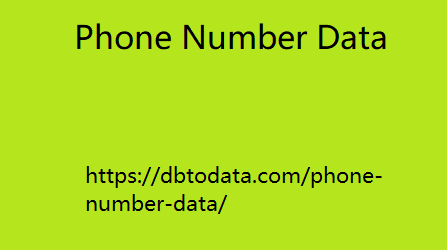Non-verbal cues, such as body language, facial expressions, and tone of voice, play a crucial role in human communication. While words convey the literal meaning of a message, non-verbal cues can significantly impact how that message is perceived.
The Importance of Non-Verbal Cues
Reinforcing Verbal Messages: Non-verbal Singapore Phone Number Data cues can reinforce or contradict verbal messages, making communication more effective.
Expressing Emotions:
Facial expressions and body language can convey emotions that words alone may not capture.
Building Rapport: Non-verbal cues can help build rapport and trust between individuals.
Cultural Differences: Understanding cultural differences in non-verbal communication is essential for effective cross-cultural interactions.
Common Non-Verbal Cues
Facial Expressions: Facial expressions can convey a wide range of emotions, such as happiness, sadness, anger, and surprise.
Body Language: Gestures, posture, and WS Database IN eye contact can communicate messages about confidence, interest, and engagement.
Tone of Voice: The pitch, volume, and pace of your voice can convey your emotions and attitude.
Proxemics: The use of space can communicate social and cultural messages.
Haptics: Touch can convey a variety of emotions and messages, such as affection, reassurance, or aggression.
Tips for Effective Use of Non-Verbal Cues
Be Mindful of Your Own Non-Verbal How to Build Phone Number Services Cues: Pay attention to your own body language and facial expressions to ensure they align with your message.
Observe Others:
Observe the non-verbal cues of others to better understand their emotions and intentions.
Adapt to Different Cultures: Be aware of cultural differences in non-verbal communication and adjust your behavior accordingly.
Practice Empathy: Try to understand the other person’s perspective and respond accordingly.
Seek Feedback: Ask for feedback on your non-verbal communication to identify areas for improvement.
By understanding and effectively using non-verbal cues, you can improve your communication skills, build stronger relationships, and achieve your goals.

